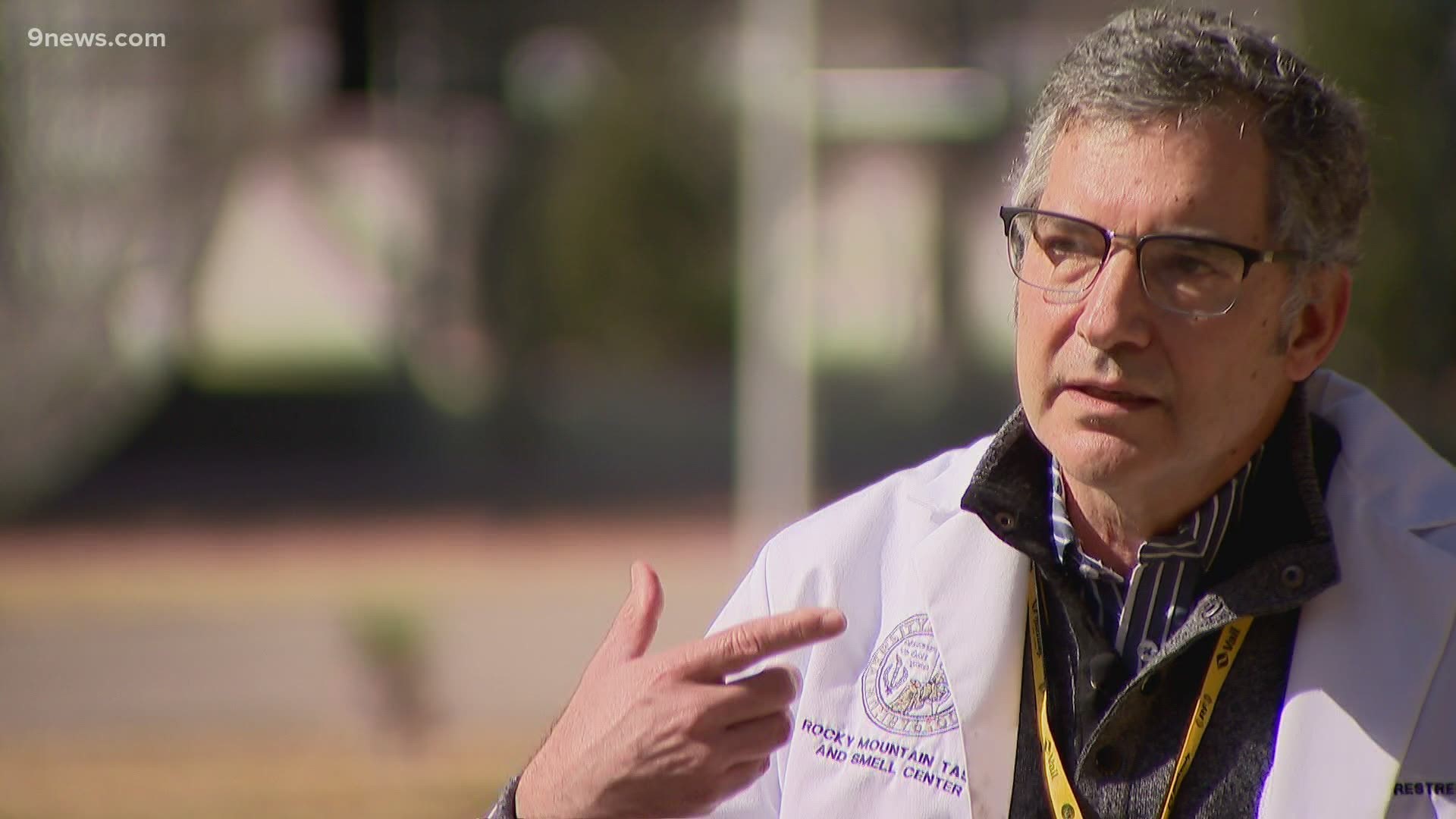LITTLETON, Colo. — Rosa DaSilva hates cilantro – but, when the herb arrived as an ingredient in a HelloFresh box a few weeks ago, her mom, Anne, put it in her meal – she thought, why not?
DaSilva didn't notice the cilantro then and she didn't notice the milk had gone bad later that week either.
"I made myself hot chocolate and I accidentally used spoiled milk, but I didn’t know I used spoiled milk," she said.
It's been nearly two months since the 17-year-old tested positive for COVID-19. She said she had mild symptoms for two weeks, but the first symptom she noticed, a loss of smell and taste, remains.
“Sometimes I forget I can’t taste," she said. "So, I ordered a spicy chicken sandwich with a lemonade and I go to drink my lemonade and I'm like ah, Chick-fil-A ripped me off, they gave me a water."
They didn't, but the lemonade tasted like water to DaSilva.
Dr. Diego Restrepo, a professor of cell and developmental biology at the CU School of Medicine, said most liquids tasting like water is common with COVID-19 patients who lose their sense of smell.
He studied olfaction long before the virus, but recently received a $125,000 grant from the National Institutes of Health to look into the impact COVID-19 has on sense of smell.
“Many diseases start with the loss of smell," said Dr. Restrepo. "Including for example diseases that you wouldn’t think about like Alzheimers."
His research involving SARS-COV-2 will test a drug to see if it could help bring back a sense of smell to patients like DaSilva and look into how the virus attacks the neurons in the nose.
“We’re trying to see whether viruses actually elicit that loss of smell that then causes other symptoms," said Dr. Restrepo.
A few weeks ago, DaSilva did smell some things, but they weren't smells that actually existed.
“I’d come upstairs and oh, something’s burning, is the oven on? There was nothing burning, nothing in the toaster, nothing like that so, I’m like well, that’s strange," she said.
Dr. Restrepo said that's likely called Parosmia and "it has to do with the system rewiring so first you lose your sense of smell and there’s wires, there’s actions going into the brain to take the signal into the brain, very likely the system is rewiring incorrectly."
“It made me nauseous, hard to eat, that part was honestly worse than my actual two-week quarantine," said DaSilva.
Although her senses have stopped tricking her, they haven't come back, and so DaSilva started doing something called "smell training," a technique one of Dr. Restrepo's colleagues in Germany came up with in 2009.
DaSilva put essential oils with distinct smells in jars and she smells them each for 20 seconds every night.
"And you just think about smelling rose for this one and I just think about what it would have smelled like," she said.
Throughout the past two months, DaSilva has remained hopeful. "The end of March, that's when I'll get my smell back," she said laughing.
And before then, she still won't eat cilantro – at least not on purpose.
SUGGESTED VIDEOS: COVID-19 Coronavirus

